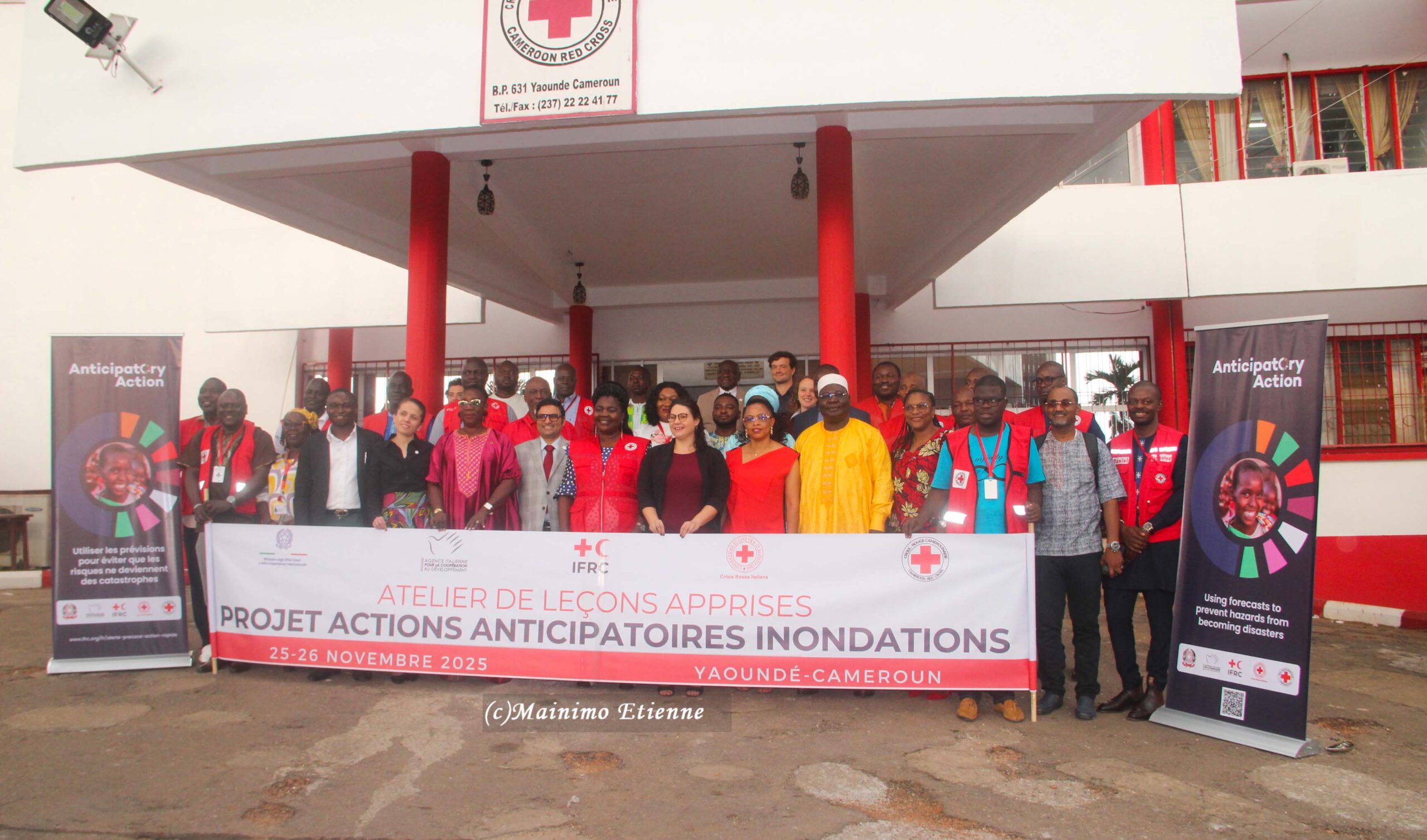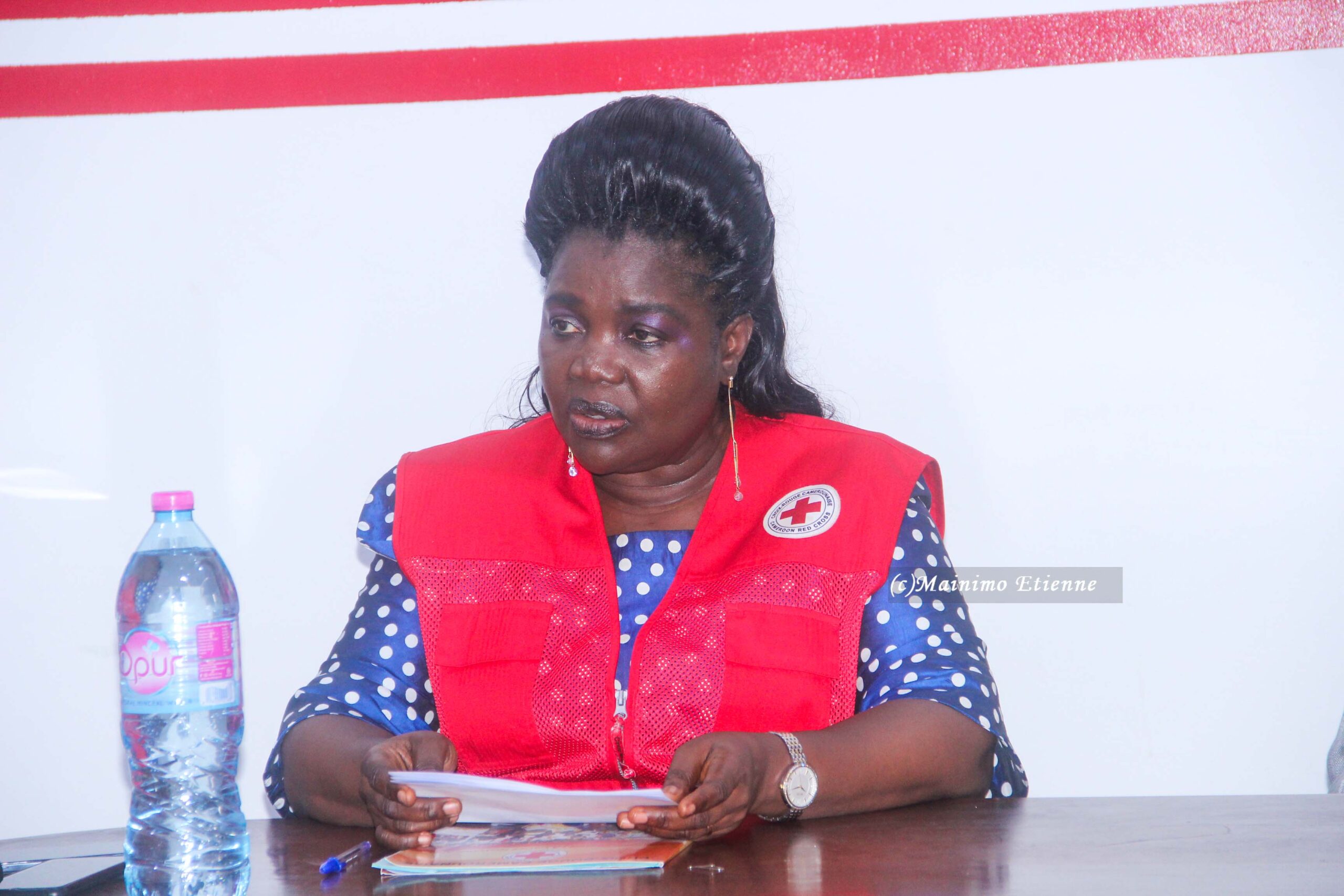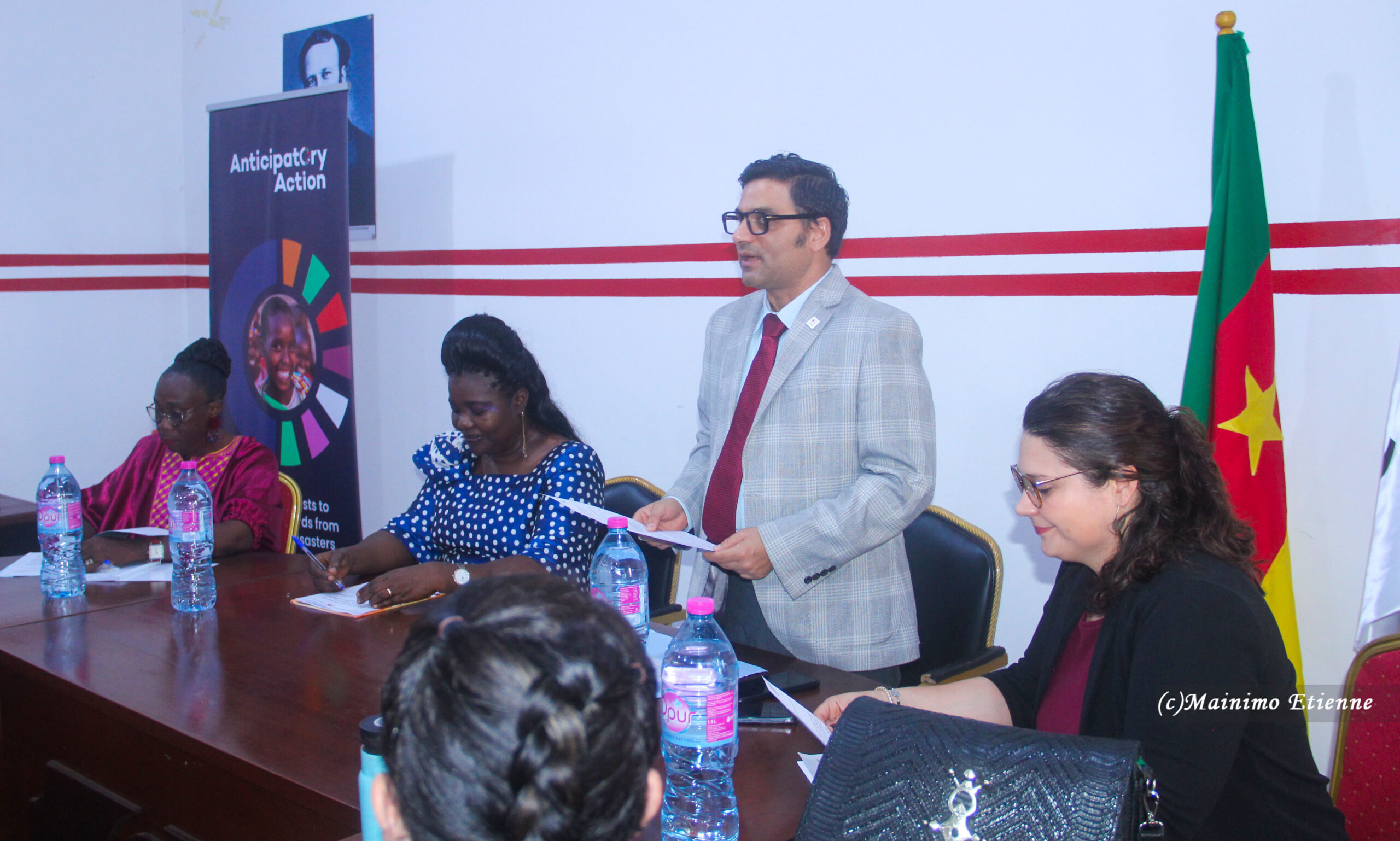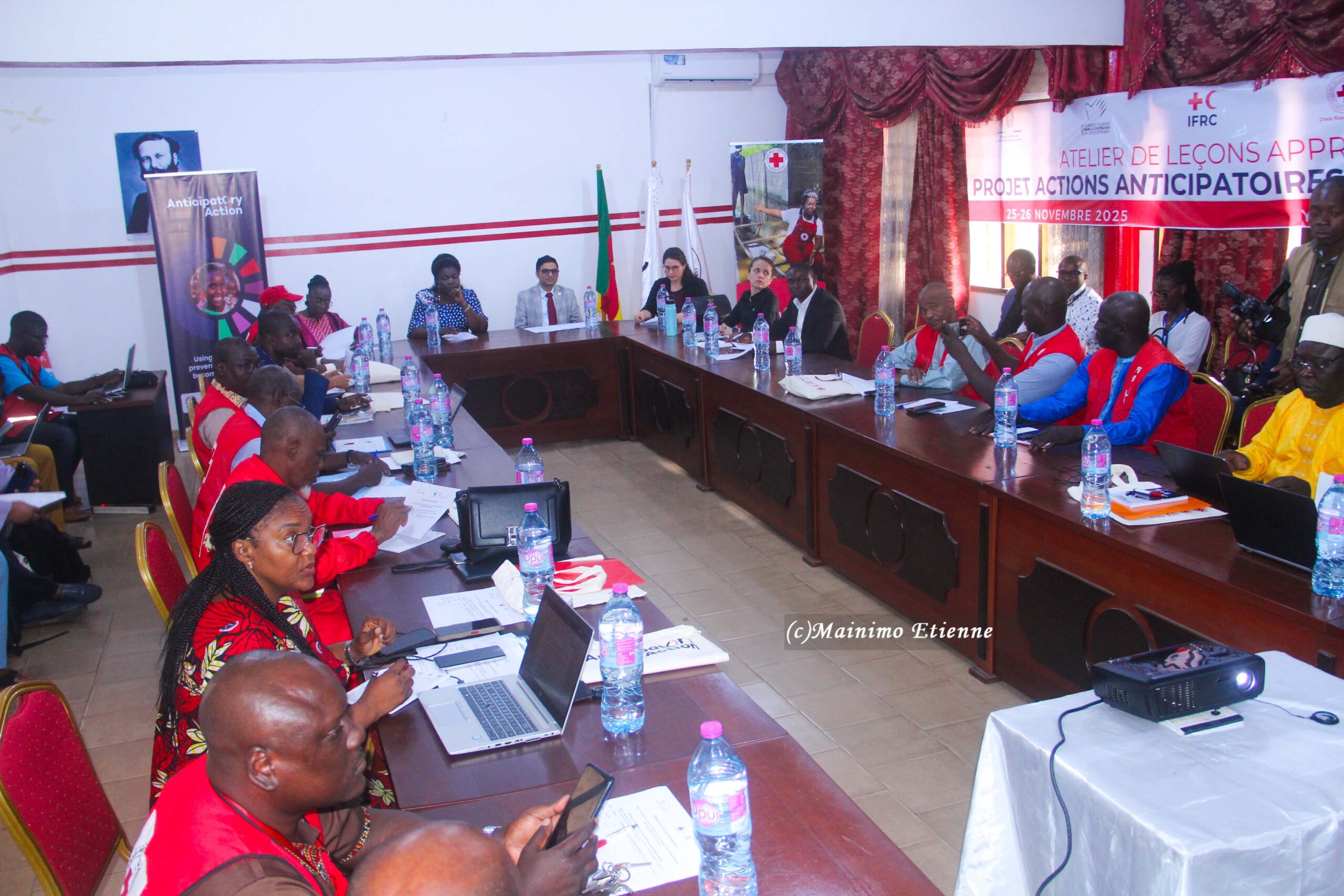By Etienne Mainimo Mengnjo
The Cameroon Red Cross (CRC), together with key stakeholders, have organized a workshop to draw lessons, identify challenges, and develop a roadmap for the Anticipatory Action Program.

This is the substance of a two-day workshop that took place from November 25 to 26 in Yaoundé. The Anticipatory Action Program is an initiative of the Cameroon Red Cross supported by the International Federation of the Red Cross and Red Crescent Societies, the Italian Red Cross, the Climate Centre, and the Italian Government, aimed at enhancing civil protection strategies in response to climate change.
During during the workshop, CRC President Cecile Akame Mfoumou welcomed participants, stressing that their presence embodies a strong commitment to civil protection issues.
She highlighted the undeniable impacts of climate change and noted that the most significant lesson learned is that the Anticipatory Action Program provides a proactive framework to address incidents before they occur.

“We must work continuously and tirelessly to protect lives, livelihoods, and preserve the dignity of families,” Cecile Akame stated. “By preparing today, we can quickly find solutions for tomorrow, transforming threats through foresight and enhancing community resilience.”
Cecile Akame acknowledged that the Anticipatory Action Program has notably changed their approach to emergency response. “Today, we have implemented a system that readily provides data, tools, and skills. This is a major shift that merits recognition. Our efforts have not been in vain.”
She also stressed that the workshop aims to evaluate successes, challenges, and innovations from the program’s first phase, gathering insights from national and international partners to create a sustainable national roadmap for institutionalizing Anticipatory Action in Cameroon.

While tanking partners, she stated, “The anticipatory approach is not just a concept; it is a collective responsibility.”
Adesh Tripathee, Head of Delegation of the International Federation of Red Cross and Red Crescent Societies for Cameroon, Gabon, Equatorial Guinea, and São Tomé and Príncipe, praised the workshop, reiterating that Anticipatory Action involves taking proactive measures before disasters strike.
“It’s a life-saving action. The information gathered from weather forecasts, the scientific community, and local insights is essential for effective interpretation and proactive actions,” Tripathee stated.
Cornaglia Adele, representative of the Italian Agency for Development Cooperation, underscored Italy’s commitment to addressing the effects of climate change on vulnerable populations.

“Our agency has been active in Cameroon since 2016, implementing humanitarian assistance programs focused on strengthening resilience through multisectoral interventions, particularly in the Far North region,” she explained.
Barbine Enama Mbeng, a representative of the Ministry of Territorial Administration’s Directorate of Civil Protection, described the workshop as valuable, noting the critical role of anticipatory action in disaster management.
“The task is arduous, and the challenges are colossal, but they should motivate us to seize every opportunity to strengthen the resilience of our communities,” she concluded.


